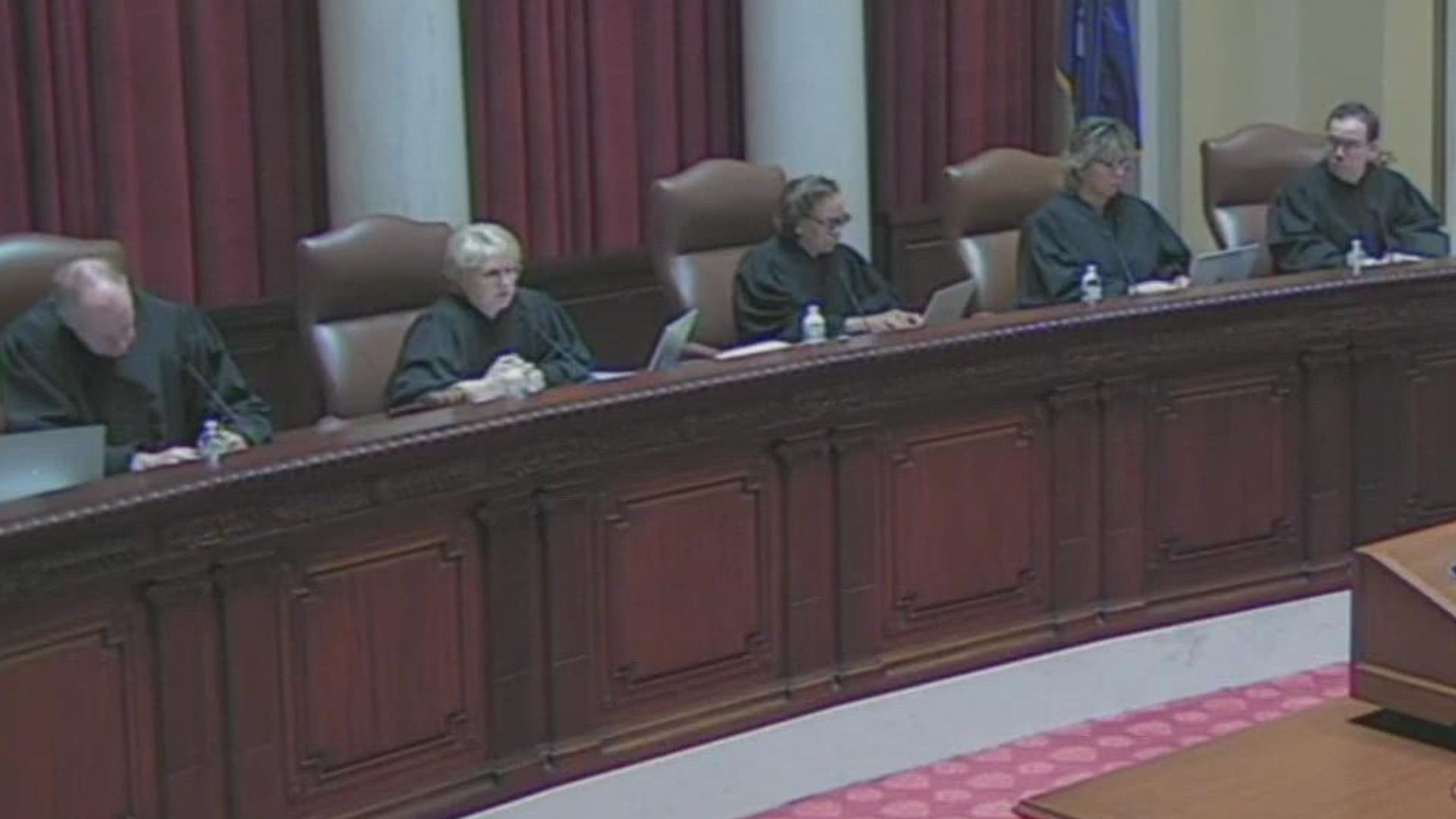ST PAUL, Minn. — The legal dispute over Minneapolis Police Department staffing levels is now in the hands of the Minnesota Supreme Court.
The justices took arguments Thursday in the case of Spann vs the Minneapolis City Council and Mayor Jacob Frey. Eight northside residents filed the lawsuit in 2020, asserting the city’s leaders weren’t trying hard enough to hire the minimum number of officers required by the city’s charter.
“It doesn’t really matter to us who’s at fault here,” James Dickey, the attorney for the residents, told capitol reporters after the hearing.
“At the end of the day all our clients want is just to have a semblance of safety and police presence in their neighborhoods which are suffering so much.”
The charter’s 1961 amendment requires the city council to provide funding for a minimum level of officers, a ratio spelled out in the charter as 17 sworn officers per 10,000 residents. That formula equates to 731 officers, based on 2020 Census numbers for the city.
During Thursday’s hearing, Justice Paul Thissen asked Dickey if the city charter actually requires the city to hire a number of officers, or if merely requires that the city council budget enough money to hire that number. The city council’s 2022 budget provides funding for 926 police department staff, including 770 sworn officers.
Assistant City Attorney Greg Sauter, appearing on behalf of the city of Minneapolis, asserted the charter gives the mayor the discretion to set hiring goals that are consistent with that minimum staffing ratio. But he said there’s no precedent for the court system taking over a city mayor’s duties.
Justice Natalie Hudson said it appears the plain language of the charter doesn’t give the mayor that kind of discretion.
The MPD’s headcount is currently below 600, in large part because 280 officers have left the department since 2020. Many filed workers comp claims for Post Traumatic Stress Disorder stemming from the protests and riots sparked by the murder of George Floyd in police custody.
The city council this spring approved Mayor Frey’s police recruitment plan, which included using federal American Rescue Plan to boost hiring efforts. It includes a $7,000 recruitment and retention bonus, part of a larger effort to bring the department up to 860 officers by 2027.
A Hennepin County judge last year ruled in favor of the plaintiffs, which include former Minneapolis City Council Member Don Samuels and his wife Sondra. The judge ordered a “show cause” hearing in which the city council and mayor would be compelled to bring staffing up to 731 or explain why it couldn’t be done. In March the Minnesota Court of Appeals overturned that ruling, so the plaintiffs are now asking the Supreme Court to send the case back to the lower courts.
The lawsuit was filed a year before Minneapolis voters defeated a proposed charter amendment that would’ve removed the minimum staffing requirement. The rejected amendment also would’ve converted the police department into a division of a larger public safety department controlled by the city council.
One of Dickey’s clients, Georgianna Thanos, described the 2020 event that led her to join the lawsuit.
“I saw 12 youths run through my backyard carrying guns, chasing a guy down the alley to a house where they shot and killed the 20-year-old guy!” Thanos recalled. “It was so scary. I’ve lived there all my life in Jordan and Hawthorne, and I am not moving.”
In the aftermath of Floyd’s killing several city council members called for reorganizing the department at a rally where they stood on a stage with a banner that read “Defund the Police.” They never actually defunded police or cut funding to the department, but it created a narrative that the city’s police officers had lost support of their leaders.
Mayor Frey and former Chief Medaria Arradondo had sought more officers in the past, but the council wasn’t convinced it was the way to go. A national crime wave that corresponded with the precipitous drop in patrol officers created a greater sense of urgency about staffing.
City leaders are also under pressure from the Minnesota Department of Human Rights to reform the police department’s history of discrimination against persons of color.
Watch the latest political coverage from the Land of 10,000 Lakes in our YouTube playlist:

